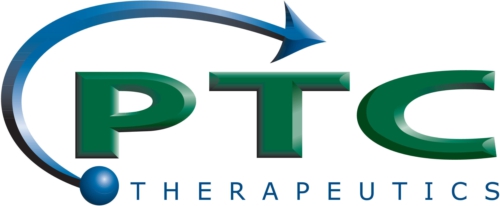PTC Therapeutics Initiates Second Phase 3 Trial of Ataluren in Nonsense Mutation Cystic Fibrosis
Written by |

In an effort to alleviate symptoms in patients with nonsense mutation cystic fibrosis–a severe form that leads to little if any CFTR protein production–PTC Therapeutics, Inc. is initiating a global confirmatory Phase 3 clinical trial to test Translarna (ataluren) under the trial name ACT CF. In a previous, 238-patient Phase 3 clinical trial testing Translarna in patients with nonsense mutation cystic fibrosis, lung function was positively benefited, especially in patients who were not treated with chronic inhaled tobramycin.
“We believe the data from our previous 238-patient Phase 3 clinical trial in nonsense mutation cystic fibrosis patients demonstrated that Translarna had a positive benefit on lung function versus placebo, particularly in patients not receiving chronic inhaled tobramycin,” said Robert Spiegel, MD, FACP, Chief Medical officer of PTC Therapeutics, in a news release.
“The ACT CF trial is designed to confirm Translarna’s efficacy based on the evidence seen in the previous Phase 3 study and other earlier work,” explained Dr. Spiegel. Patients six years of age and older with nonsense mutation cystic fibrosis and who are not receiving chronic inhaled aminoglycosides will be randomized to receive Translarna or placebo (40 mg/kg/day) three times a day for 48 weeks. An estimated 208 patients will enroll, and lung function will be measured using relative change in percent predicted forced expiratory volume in one second (FEV1). “By focusing ACT CF on the patient population that can most readily demonstrate the effect of Translarna, we believe we have optimized our opportunity for a successful trial,” said Dr. Spiegel.
Translarna is among only a few medications for cystic fibrosis that seek to treat the cause, rather than the symptoms, of cystic fibrosis. It is a protein restoration therapy designed by PTC Therapeutics to enable synthesis of proper CFTR proteins. “Current treatments for nonsense mutation cystic fibrosis focus on alleviating symptoms and reducing infections, whereas Translarna targets the underlying cause of disease,” stated Michael Konstan, MD, Pediatric Department Chair at University Hospitals Rainbow Babies & Children’s Hospital and Professor of Pediatrics at Case Western Reserve University School of Medicine. “There is a significant need for better treatment options for patients with this severe form of the disease, and we believe Translarna has the potential to provide this benefit.”
Patients who successfully complete ACT CF will be granted the opportunity to join an extension study of Translarna, except in the case that a patient is in a country where Translarna is commercially available for the treatment of nonsense mutation cystic fibrosis. “We look forward to completing ACT CF and ultimately bringing this potential first-in-class treatment to those cystic fibrosis patients who may benefit,” said Dr. Spiegel.
Added Dr. Konstan, “The cystic fibrosis community is excited by the start of this pivotal study in cystic fibrosis.” The study is not yet enrolling and is expected to be complete in November 2016.






